Of course, this is simply what we're doing and how it's working (or not). I'm not advocating for any one way of teaching. And neither do I stand by one particular curriculum. Some we will keep using because they work very well for us. Others are working for now, and some are not working at all. I recognize that every family is in a different place in their schooling journey and that place changes with the growth of our children and other shifts in life.
All that said, here is what we are doing now in our homeschool.

What curriculum are we using?
A Beka Math
Who is using it?
Joshua, 7 years, Grade 2, Arithmetic 2
Hannah, 6 years, Grade 1, Arithmetic 1
Abigail, 4 years, pre-K/Kindergarten, Numbers Skills K5
How did we settle on A Beka?
We used A Beka Numbers Skills K5 for Joshua and Hannah in our very first year of homeschooling. For me, it was easy to use because the lessons are scripted out, but it seemed repetative for the kids and I wanted to see if there was something a little more engaging. We tried a year of Singapore Math, which was good for developing mathematical thinking skills but it was too teacher-intensive and produced a lot of stress and frustration.
I knew that we needed something low-stress yet thorough, with plenty of math facts practice built into each lesson. A Beka fit the bill so we made the change in January of this year.
Is it working?
YES! This curriculum is working well for us. It is a better fit for Hannah (first grade) and Abigail (kindergarten) than for Joshua (second grade). This has nothing to do with the second grade curriculum, but is simply a difference in learning style. It is working well enough for Joshua, however, that we are most likely going to move right along with A Beka and not waste time finding a better fit at this stage.
Why is it working?
We spent most of last year having ditched a formal curriculum for learning and practicing math facts. For nine months Joshua and Hannah made their way through the addition and subtraction facts using flash cards and an occasional color by number or other worksheet. It was good at the time and really helped with their memorization of math facts. However, after nearly a year of that I felt like we needed a change. This restlessness combined with knowing that we would be giving the kids standardized tests to fulfill Virginia state homeschool law, made changing to a formal curriculum seem like a good choice.
A Beka is filling the need to cover more concepts than memorizing facts while still giving plenty of practice on basic arithmetic. It is easy for me to use, requires no advanced preparation, and has been flexible enough for me to tweak it to fit into our daily routine.
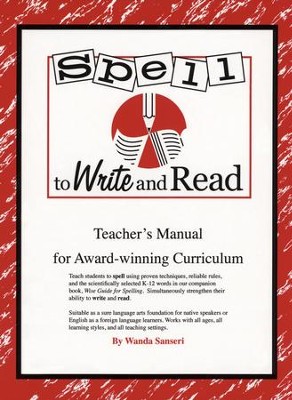
What curriculum are we using?
Spell to Write and Read
Who is using it?
Joshua, advanced speller
Hannah, intermediate speller
Abigail, beginner reader and speller
Is it working?
YES! I have written about this before here and here. The more I use this program the more I really like it. The kids are excellent readers and solid spellers. Each time I go through a section (some I have already been through 5 or more times), I am understanding more of how the English language works. It's not as complicated and conviluted as some might think.
Probably I have written before, but I will say again that I do not use this program to its fullest potential. When following all of the suggestions, you can use this set of two books to teach a complete language arts program from beginning reading through upper elementary school and even beyond. It is a little too much for me to sort out how exactly to do that, so we use it strictly for phonics (leading to reading) and spelling. We even omit the learning log and are still getting a lot out of this program.
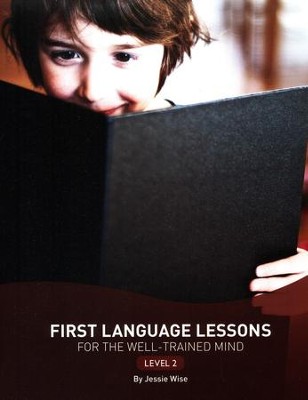
What curriculum are we using?
First Language Lessons
Who is using it?
Joshua, Level 2
Hannah, Level 1
Is it working?
I think so. I read all kinds of things about waiting until upper elementary school to introduce grammar and writing. I also read things about introducing children at a younger age to definitions and the basics of grammar and writing so that when they are older things are familiar to them. My thought is that by the time kids get to high school and college, the only thing that will matter is if they can write well. Their college professors aren't going to say, "Oh, wow! You must not have started grammar until fifth grade!" Neither will they say, "Incredible! You must have memorized the definition of a noun when you were only 6 years old!"
Why is it working?
Well, I'm not sure how well First Language Lessons is working. Joshua and Hannah are very good at memorizing things. This program definitely plays toward that strength. However, some application seems to go over their heads. The lessons are scripted and short. That means I am able to keep up with them with minimal effort. I am not a lazy mom. Neither am I a lazy teacher. I do, however, have several irons in the fire during school time alone (not to mention the rest of the day) and I know that if I can't keep up with it, the kids won't be learning that subject.
I like the simplicity of this curriculum. It works well enough for now. Therefore, we will stick it out and see what results we get in later levels.

What curriculum are we using?
Handwriting Without Tears
Who is using it?
Joshua, Grade 3 Cursive Handwriting
Hannah, Grade 3 Cursive Handwriting
Abigail, Kindergarten Letters and Numbers for Me
Is it working?
YES! You can read more about how and why we switched to this program here. Everyone enjoys handwriting. Everyone is improving in handwriting. And, true to its name, it is all without tears. Amazing!
Why is it working?
It's simple. After they learn to form letters and hold their pencil correctly the kids can do it on their own. They love the workbooks! It really couldn't work any better than that!
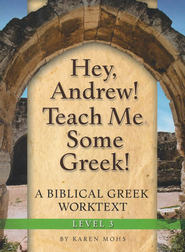
What curriculum are we using?
Hey, Andrew! Teach Me Some Greek!
Who is using it?
Joshua, Started the year with Level 2, Now in Level 3
Hannah, Started the year with Level 2, Now in Level 3
Is it working?
Yes! Joshua is attempting to construct sentences in Greek. He and Hannah enjoy using the books. They have learned this on their own for the most part (seeing as though neither of their parents currently read Koine Greek). I'm pretty sure it's working.

What curriculum are we using?
Around the World in 180 Days
A Beka History of the World in Christian Perspective
Public Library, Juvenile NonFiction 900's
Who is using it?
Joshua, Around the World in 180 Days, Grade 7 History of the World in Christian Perspective
Hannah, Around the World in 180 Days, Public Library Juvenile NonFiction 900's
Is it working?
Yes and no.
So, this is a little more complex than math or handwriting simply because the kids work at varying grade-levels and this subject can't be qualified very easily. We started off the year using the public library to check out books of the kids' interest. They read about things from ancient civilizations to men landing on the moon. You can read about how we did that here. But they needed more structure.
Why is it working? Why isn't it working?
In an attempt to find something we could all do together, we tried Around the World in 180 Days. I like the idea, but couldn't really pull it off. Getting books on hold from a fairly small library system was challenging. Guiding two young elementary students through the process of reading various books in order to find answers to specific questions was tedious and too time-consuming for me.
Joshua did great with it. I threw a packet of questions and maps at him along with a stack of books and some atlases and he finished two units without much trouble (or effort, for that matter). He needed more of a challenge. For Hannah it was more challenging and frustrating. She is younger than Joshua and her strengths lie in different areas. She needed something more age-appropriate.
Joshua has recently switched to A Beka History of the World in Christian Perspective. I will start by saying that I had no idea that I handed him a seventh grade level book. I really didn't. We bought a used copy, along with a few other Christian history textbooks, to help us along with the Around the World curriculum. The book does not say what grade it is intended for. When he finished units on Antarctica and Australasia, did two extra activities and reports, and I didn't have the next unit ready for him I realized this approach wasn't going to work. So, I grabbed a textbook from the shelf and said, "Read this, define the bold terms, and answer any questions you see." He is doing great with it!
Hannah has gone back to the willy-nilly, ready-what-you-feel-like method. It's not bad, but she is lacking direction and doesn't have the a strong interest in the subject to be self-driven. For now we are just finishing out the year. But we will be doing something different with her next year.
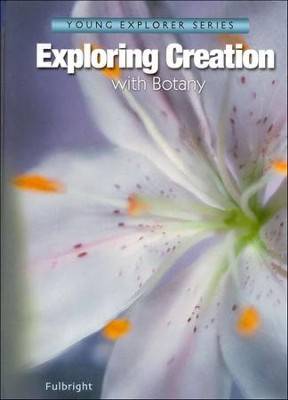
What curriculum are we using?
Apologia Exploring Creation with Botany
Public Library, Juvenile NonFiction (I can't remember the call numbers - anything from plants to animals to innovations)
Who is using it?
Joshua, Apologia Exploring Creation with Botany
Hannah, Public Library Juvenile NonFiction
Is it working?
Yes and no.
This is very similar to our story of history and geography curriculum. Joshua needed more structure and direction, so early this year we set him to work through the Apologia textbooks. Hannah has continued with the library approach but is at a point of needing more direction. She will be switching next year.
Why is it working? Why isn't it working?
Apologia is working well for Joshua. It is pretty thorough without being overwhelming. The text is easy to read and gives in-depth information and explanations. I like that it isn't full of cartoons and that the text doesn't sound like it's from a toddler board book. We will definitely continue using these textbooks.
What isn't working are the projects. It is hard to keep up with things like this. Claude is taking care of holding Joshua accountable with his projects, but many of them Joshua does in the morning and then moves on before Claude or I even know he's done it. Honestly, I haven't checked his science notebook in several weeks. And since he is one to value completing assignments quickly rather than being thorough, I have no idea how he's really doing.
I know...bad mom. Bad, bad homeschool mom. This is why I need summer. A chance to stop the madness of the daily school grind and be inspired to want to check the science notebook. Oh, yeah...and give birth, recover, figure out how to do life with six children, and then jump back into a new school year. Sounds like a recipe for being able to check all the schoolwork, doesn't it? ;)
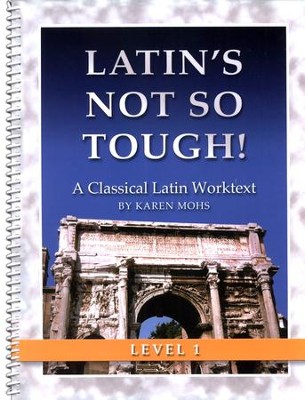
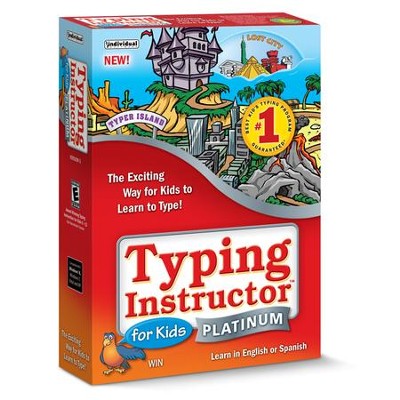
NEW SUBJECTS
Joshua will be adding two new subjects next year. He needs a little more challenge and stimulation. Plus, there are a couple of skills he needs to begin working on. His new subjects will include keyboarding and Latin.
Why keyboarding?
Because it's a necessary skill and he has had very little practice using a computer or keyboard of any sort. I think he'll have fun since it will seem more like a game than a school subject. Since I'm the mean ogre mom who makes him slave away over assignments all day this may be a breath of fresh air for him.
Why Latin?
Because it's a necessary skill and...oh, wait. That's not the reason!
When asked what subjects he would really like to study in school he said, "Hebrew, Latin, Geography, and Space." Joshua has a knack for languages. He is picking up Greek very easily and is interested in developing his own codes and secret languages. He also says that one day he wants to write books for people to understand difficult things like the book of Revelation, the Rapture, and the Millenial Kingdom.
Biblical languages are a natural fit for him. As is Latin and maybe Elvish. Hebrew will probably come in time, but of the two languages Latin seemed like a better choice for an 8-year-old.
WHAT'S IN THE WORKS FOR NEXT YEAR
With all that in mind, here's what the plans are for next year:
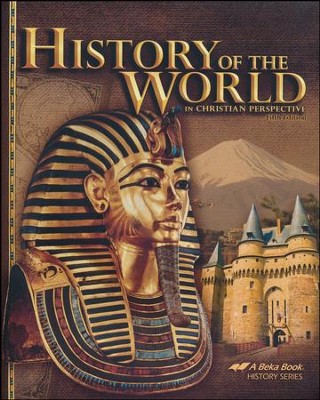
Math: A Beka Arithmetic 3
Spelling: Spell to Write and Read, Wise Guide for Spelling (Finishing!)
Grammar: First Language Lessons Level 3
Handwriting: Handwriting Without Tears Grade 4 Cursive Success
Keyboarding: Typing Instructor
Latin: Latin's Not So Tough Level 1
Greek: Hey, Andrew! Teach Me Some Greek! Levels 3 and 4
History and Geography: History of the World in Christian Perspective
Science: Apologia Exploring Creation Series (TBD; Possibly Astronomy)

Math: A Beka Arithmetic 2
Spelling: Spell to Write and Read, Wise Guide for Spelling
Grammar: First Language Lessons, Level 2
Handwriting: Handwriting Without Tears Grade 4 Cursive Success
Greek: Hey, Andrew! Teach Me Some Greek! Level 3
History and Geography: A Beka Our American Heritage
Science: Apologia Exploring Creation with Botany
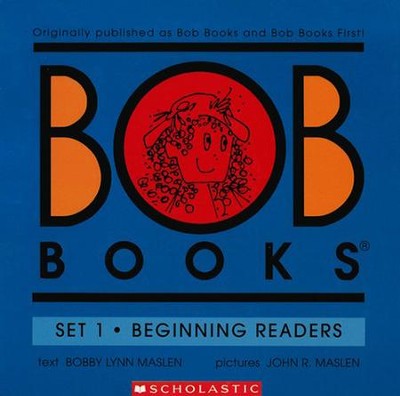
Math: A Beka Numbers Skills K5 and Arithmetic 1
Phonics / Reading / Spelling: Spell to Write and Read, Wise Guide for Spelling, BOB Books, Home Library, Public Library
Handwriting: Handwriting Without Tears Kindergarten Letters and Numbers for Me and Grade 1 My Printing Book
CONCLUSION
We have made a number of changes to our curriculum mid-year. This is the first time we have done this, and I do hope it's the last. It won't be, but I can dream, right? I like routine. I like things that work. I like making plans that we can actually stick with and that will succeed. But, I do like a change of pace every once in a while and I do not like when things are not going well.
As we are in the final weeks of our third year on this homeschool path, I think we are settling into some curriculum choices that will likely stand the test of time. Things that fit into our ever-crazier daily routines are not things I will toss out the window with the changing of the winds. We are learning what works, what doesn't, and when to make changes.
So, what have you been doing in your homeschool recently? What is working? What isn't working? What are you doing about it?













